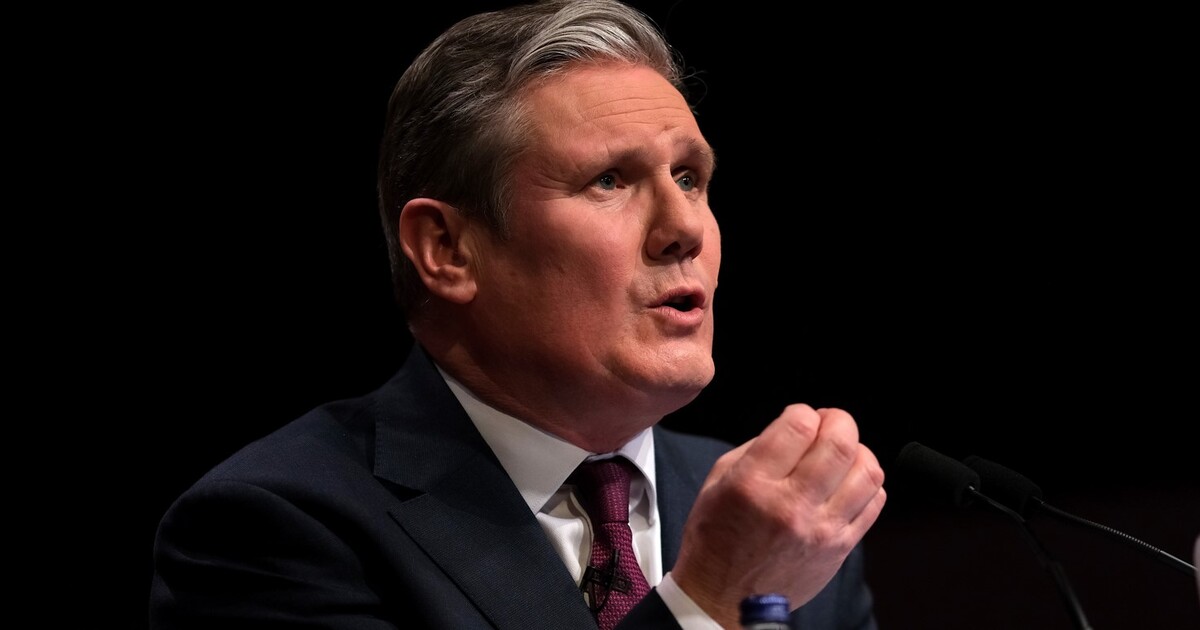
A Strategic Assessment Memo (SAM) from the Global Ideas Center
You may quote from this text, provided you mention the name of the author and reference it as a new Strategic Assessment Memo (SAM) published by the Global Ideas Center in Berlin on The Globalist.
Who is Sir Keir Starmer — now the most solidly implanted leader of the left in Europe?
He is the same age as Clement Attlee, Labour’s most famous Prime Minister, who served from 1945 to 1951.
Attlee transformed Britain by nationalizing most industries, creating a national health service (which even today is free for every citizen), making trade union partners in industry and giving India and Pakistan their independence without the wars in Indochina and Algeria — the path that socialist ministers in France chose in the 1945-1958 period.
From “Mister” to “Sir”
Why Sir Keir? The “Sir” is a title bestowed upon senior state functionaries. Mister Starmer became a “Sir” when he was named Chief Prosecutor of England during the Tony Blair government. He could have remained a simple “Mister” Starmer but took the title.
Starmer just moved into Downing Street to begin his first ever period of political office. Attlee, in contrast, had previously first been a famous left-wing mayor of a poor East London working class suburb and pioneered social housing and childcare policies.
He then became a minister in 1929, and then leader of the Labour Party in 1935 and deputy Prime Minister in Winston Churchill’s cabinet in the Second World War.
By the time Attlee, or Harold Wilson or Tony Blair became Labour Prime Minister, they had years of political practice and experience from an early age.
From law to politics
Starmer has never sought election as an MP, or even a local councillor. He was a lawyer specializing in human rights cases overseas.
Human rights law has become a major branch of the legal profession following the legislation of supra-national human rights conventions at the EU and UN level.
Starmer was no theatrical court room advocate specializing in dramatic appeals. He was a methodical, step-by-step lawyer who defended his clients with rational arguments based on legal precedents.
It was this calm sobriety that appealed to Tony Blair when Starmer was named state prosecutor for England in 2008. He was a high state functionary, but not involved in politics.
In 2015, aged 50, he was elected a Labour MP and accepted to serve Jeremy Corbyn, the Jean-Luc Mélenchon of Britain’s Labour Party.
Other more experienced Labour MPs challenged the anti-European Corbyn. They knew he would guarantee Labour’s defeat and keep the right in power.
The new face of Labour
Starmer chose to stay loyal to Corbyn. When Labour was defeated by Boris Johnson in 2019, he put himself forward to be Leader of the party. He succeeded, not least because he had no special profile, had made no enemies and was seen as professional and competent.
He was also lucky, as the Brexit era Conservative prime ministers he faced were incompetent, stupid, corrupt and told open lies to Parliament.
Once in his post, Starmer moved systematically to promote centrist Labour MPs as future ministers. They accepted Conservative economic practice insofar as they promised that there would be no increase in taxes on individuals.
And the broken public services of health, schools, care homes and railways would be improved by better management — not new investment.
Starmer also removed left-wing deputies and candidates and replaced them with men and women who supported policies that appealed to the English middle classes.
He avoided re-opening the Brexit divide in Britain and refused to challenge the 2016 plebiscite which was partly financed by Vladimir Putin and supported by the Rupert Murdoch press with non-stop lies in both major paper like The Times as well as in nearly all British tabloids.
Playing the long game
Starmer waited patiently for the Conservatives to make mistakes. Boris Johnson was forced to resign from the House of Commons after MPs decided he had lied once too often to them.
Liz Truss, the pro-Brexit Prime Minister for 49 days, had to resign after she proposed a financial program of tax cuts for the rich and leaving all middle-class British citizens seeing the interest rates most pay on loans to buy their homes massively increase.
The last Tory prime minister, Rishi Sunak, was, like Emmanuel Macron, a clever member of the country’s elite with a technocratic bent.
Both men had been bankers — Sunak with Goldman Sachs and Macron with Rothschild — before they decided they were men of providence who should enter politics and go straight to the top job without any apprenticeship in the craft of professional politics.
Stay calm and carry on
Compared to the Conservatives’ right-wing racist, anti-immigrant baiting, Starmer stayed calm and avoided radical rhetoric.
Part of his circumspection in this regard may well be related to the fact that his wife’s father was a Polish Jewish immigrant and her mother converted to Judaism. The family — he has a teenage son and daughter — are not religious but keep the Friday Shabbat evening family meal as a fixed point in their family life.
Starmer has a passion for playing weekend football and watches all Arsenal games. In other words, a typical north London professional. He speaks no foreign languages and has never worked in Europe.
The Brexit dimension
While polls show 57% of British citizens now think Brexit was a mistake, there is no majority in the polls for a return to the EU if a new referendum was held.
Labour over many decades was bitterly divided on Europe. The paradox of leaving the EU means that the Europe question no longer divides Labour, and so the party can appear united on this historically divisive issue in left politics in Britain.
Labour has won 412 seats in the Commons which is a triumph. Yet, only 35% of voters backed Starmer. The British system of single seat majority election can give a party control of the House of Commons without winning 50% of votes cast. So do not expect a rapid return of Great Britain as a EU member state.
Starmer made the correct judgement in his four years as party leader to place Labour where British voters are — rather than as the left often does believing voters will follow what party-political ideologues and activists desire.
Conclusion
Starmer will be in power for five years. At a time when France and other European nations see the rise of anti-system populist nationalist parties, and countries like Germany and Spain struggle with quarreling coalitions under a left head of government, and across the Atlantic the specter of a President Trump Redux menaces world peace and stability, Sir Keir Starmer has created a British politics that is stable, measured and progressive and not ultra radical.
It is not revolutionary, but it has won power, so perhaps comrades in European democratic left parties might come and learn how Labour has won power with a big majority?
Takeaways
Keir Starmer is now the most solidly implanted leader of the left in Europe.
Starmer has never sought election as an MP, or even a local councillor. He was a lawyer specializing in human rights cases overseas.
Starmer avoided re-opening the Brexit divide in Britain and refused to challenge the 2016 plebiscite which was partly financed by Vladimir Putin and supported by the Rupert Murdoch press with non-stop lies.
Compared to the Conservatives' right-wing racist, anti-immigrant baiting, Starmer stayed calm and avoided radical rhetoric.
Starmer will be in power for five years. At a time when European nations see the rise of populist nationalist parties, he has created a British politics that is stable, measured and progressive and not ultra radical.
A Strategic Assessment Memo (SAM) from the Global Ideas Center
You may quote from this text, provided you mention the name of the author and reference it as a new Strategic Assessment Memo (SAM) published by the Global Ideas Center in Berlin on The Globalist.


